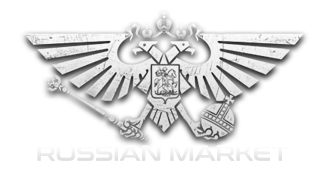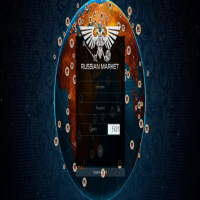What Is RussianMarket and How Does It Enable Cybercrime?

Strong 8k brings an ultra-HD IPTV experience to your living room and your pocket.
In recent years, the dark web has gained infamy for hosting a variety of illicit activities, with marketplaces like RussianMarket becoming hotspots for cybercrime. RussianMarket has become notorious for enabling the sale of stolen financial information, account credentials, and unauthorized access to remote systems, fueling crimes such as identity theft, data breaches, and financial fraud. This marketplace primarily deals in highly sensitive products like dumps, CVV2 codes, and Remote Desktop Protocol (RDP) access, making it a significant contributor to global cybercriminal enterprises. But what exactly is RussianMarket, and why is it such a threat to individuals, businesses, and governments alike?
What Is RussianMarket?
RussianMarket is a major dark web marketplace known for selling various illegal products and services, primarily focused on stolen financial data, hacking tools, and unauthorized access credentials. Though its name may suggest a regional connection to Russia, the market's reach extends far beyond Russia's borders, attracting cybercriminals from all over the world.
The appeal of RussianMarket stems from its anonymity, which is facilitated through encryption and the use of cryptocurrencies as payment methods. These elements provide buyers and sellers with relative protection from law enforcement. Without these safeguards, cybercrime as a business model would be much harder to execute. As a result, RussianMarket has evolved into a thriving hub for cybercriminals looking to profit from a range of malicious activities, including card fraud, ransomware attacks, and unauthorized network access.
The Dangers of Dumps on RussianMarket
"Dumps" are one of the most common products sold on RussianMarket. In cybersecurity, a dump refers to the stolen data found on the magnetic stripe of a credit card or debit card. This information includes the card number, expiration date, cardholder’s name, and occasionally, the card’s PIN. Dumps are often acquired using physical skimming devices or malware, making them a lucrative commodity for cybercriminals.
Once obtained, these dumps are sold on marketplaces like RussianMarket to buyers who use the data to make fraudulent purchases, commit identity theft, or create counterfeit cards. The risk to consumers is significant, as the data can be used to quickly drain bank accounts, rack up credit card charges, or even take out loans in their name. Given the widespread nature of this illegal activity, the global financial sector faces millions of dollars in losses due to these fraudulent transactions.
RussianMarket serves as an essential link in this criminal chain, enabling the fast distribution of stolen financial data. By giving cybercriminals easy access to dumps, RussianMarket aids in the theft of sensitive information that otherwise would be much harder to distribute at scale.
RDP Access: A Powerful Tool in the Wrong Hands
Another major offering from RussianMarket is Remote Desktop Protocol (RDP) access. RDP is a legitimate feature used by IT professionals and organizations to remotely access and manage computers over a network. However, in the wrong hands, RDP access can become a powerful tool for cybercriminals.
Cybercriminals exploit weak or poorly secured RDP connections to access vulnerable systems, gaining the ability to control a remote machine, install malware, exfiltrate data, or launch other types of attacks, such as deploying ransomware. These systems can include individuals’ computers or business networks, making RDP access a lucrative and dangerous commodity on platforms like RussianMarket.
RussianMarket is one of the main sources where hackers can buy and sell unauthorized RDP access, enabling criminals to infiltrate systems, extract sensitive data, and deploy various types of malware, which are then used to carry out further crimes. Since most businesses and individuals are unaware of how vulnerable their RDP systems are, selling and buying RDP access on RussianMarket exacerbates the security challenges faced by organizations worldwide. Once an attacker gains access via RDP, they can maintain a foothold in a network, often undetected, for a long time, wreaking havoc over time.
The Growing Threat of CVV2 Codes on RussianMarket
Alongside dumps, CVV2 codes are another critical piece of the cybercrime puzzle sold on RussianMarket. CVV2 codes are the three- or four-digit security codes printed on the back of credit and debit cards, serving as an additional layer of authentication in card-not-present transactions, such as online purchases. These codes are essential for preventing fraud in online payment systems.
However, once these codes are stolen and sold on RussianMarket, criminals can use them to conduct illegal online transactions, allowing them to buy goods or services using someone else's identity. In many cases, cybercriminals often acquire the full set of information (including the CVV2 code) to conduct larger-scale fraud, with the end result being considerable financial loss for victims.
When a buyer obtains stolen card data, including the CVV2 code, they can use it for various illicit purposes: purchasing products, taking out cash from ATMs, or reselling stolen goods. The widespread sale of CVV2 codes makes them a top concern for financial institutions and consumers alike, contributing to the growing threats of financial fraud.
The Global Impact of RussianMarket’s Influence on Cybercrime
What makes RussianMarket particularly dangerous is the global nature of its trade. Unlike local criminal networks, which may be constrained to a specific country or region, RussianMarket connects individuals from all corners of the world. Buyers, sellers, and brokers can be based in different nations, operating with virtual anonymity. This facilitates the cross-border exchange of illicit goods, posing significant challenges for law enforcement agencies attempting to track and apprehend cybercriminals.
Moreover, the sheer volume of illegal transactions taking place on RussianMarket means that it has a critical mass of users: hackers, fraudsters, data thieves, and others. These transactions cover everything from stolen financial information to more advanced hacking services, such as hacking tools or malware. Because of its anonymity and ease of use, RussianMarket acts as a critical infrastructure for cybercrime networks operating on the dark web. For those involved in online fraud, data theft, or ransomware, this platform serves as an indispensable tool for gaining access to stolen goods or services that can facilitate further crime.
Why Are RussianMarket and Similar Sites So Difficult to Shut Down?
One of the main reasons RussianMarket remains so prevalent and continues to thrive is due to its elusive nature. Like many dark web platforms, RussianMarket operates beyond the reach of most traditional law enforcement agencies, leveraging the Tor network to anonymize its users and provide additional layers of encryption to protect transaction details. The dark web is essentially a haven for cybercriminals because of its focus on privacy and secrecy.
Attempts to take down dark web marketplaces like RussianMarket are met with several obstacles. First, the use of cryptocurrency for transactions makes it nearly impossible to track payments and identify perpetrators. Second, the decentralized nature of dark web platforms means that they often do not exist on a single server or domain, making it harder to disrupt the marketplace. Instead, RussianMarket may move across different domains or shift its operations to different hosting locations to avoid detection.
Despite these challenges, various international law enforcement agencies are working together to close down illegal dark web marketplaces and track cybercriminals. Operations such as "Operation Disruptor" have had some success in dismantling other dark web marketplaces and arresting individuals involved in cybercrimes. However, the continuous evolution of dark web technologies and the constant shifting of marketplaces make it difficult to fully eradicate threats like RussianMarket.
What Can Be Done to Protect Yourself from RussianMarket-Driven Cybercrimes?
To reduce the risk of falling victim to cybercrimes originating from platforms like RussianMarket, individuals and businesses alike should take precautionary measures:
Strong Passwords & Two-Factor Authentication: Regularly updating passwords and using two-factor authentication (2FA) on critical accounts can add a significant layer of security.
Stay Vigilant About Personal Information: Refrain from oversharing sensitive information online and monitor bank and credit card accounts for suspicious activity.
Implement Network Security Measures: Organizations should regularly audit and update their security infrastructure, employ VPNs and firewalls, and monitor for intrusions to prevent unauthorized access.
Educate & Train Employees: Regular employee training on cybersecurity best practices and phishing prevention is key to minimizing the risks posed by remote access and unauthorized logins.
Conclusion: The Continuing Threat of RussianMarket and Its Global Implications
RussianMarket is not just a hidden online market selling illicit goods. It is a key facilitator of global cybercrime, where stolen financial data, compromised accounts, and unauthorized network access come together to create a multi-layered threat to individuals, businesses, and even governments worldwide. By selling dumps, CVV2 codes, and RDP access, RussianMarket enables criminals to carry out sophisticated fraud schemes, theft, and attacks at a massive scale.
Though law enforcement agencies are working hard to combat cybercrime, RussianMarket remains a significant threat due to the anonymity of the dark web and the ease with which criminal operations are conducted. Until more effective measures are taken to secure the internet and reduce online criminal activities, platforms like RussianMarket will continue to endanger the security and privacy of users across the globe.
Note: IndiBlogHub features both user-submitted and editorial content. We do not verify third-party contributions. Read our Disclaimer and Privacy Policyfor details.


